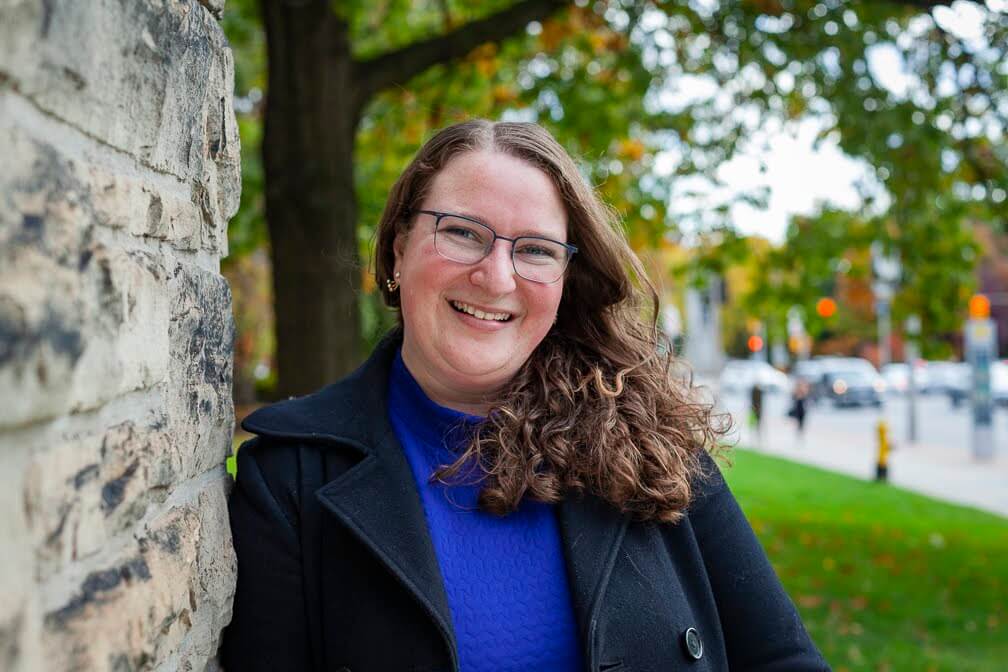Next Generation Scholar Spotlight: Diana Burchell

OISE, University of Toronto
@mmeburchell
https://xichenmll.wixsite.com/website
What led you to be interested in developmental psychology and education?
I’m a French immersion and special education teacher, and I was becoming increasingly frustrated by the lack of support for exceptional and multilingual students in French programs. I had one student in particular who loved French and wanted to take it, but was forced to drop it since she was not able to get the support she needed to be successful. I’ve always been a big-picture thinker, and I knew it would be more impactful for me to address the issue systemically. I was planning to do a master’s degree and was connected to Dr. Becky Chen, who recommended that I apply to a master’s degree in developmental psychology and education. I quickly fell in love with the field and research. I decided to stay and complete my PhD, and I now plan to pursue research and academia as my career.
Can you tell us a little bit about your research?
Absolutely! I have two main projects in my dissertation. The first project is a part of the International Bilingual Education (IBE) project, which is SSHRC PD grant held by my supervisor, Dr. Becky Chen. We’re developing a dynamic assessment tool for orthographic awareness. This year is the last year of a 3-year longitudinal study where we’re working with 150 kids in grades 2-4. We’re investigating whether dynamic assessments are more sensitive to children’s language development, and whether they will better predict reading development compared to static measures. The second project is funded by my own SSHRC doctoral fellowship (the Joseph-Armand Bombardier CGS-D). We’re interviewing approximately 30 parents, teachers, and administrators in FSL programs to ask them about the strengths and weaknesses of these programs. We have a specific focus on accessibility from a financial, social and disability standpoint.
What inspired you to join the EFL team?
I strongly believe that collaboration is the only way to tackle the ‘big issues.’ This team is doing amazing work by bringing together experts from diverse backgrounds and with different areas of expertise. I jumped at the opportunity to be a part of it, and I’m very grateful that I did. I’ve learned a great deal (e.g., Julia Rivard-Dexter’s talk on industry partnerships) and I’ve been able to contribute through the connections we’ve built (e.g., publishing in The Conversation after our talk with Scott White). It’s been a truly wonderful opportunity.
What are you currently working on within the EFL team?
Currently, we’re working on an interview project with parents, teachers and administrators (see the website link here). I also recently hosted a Next-Generation scholar talk with my colleagues, Michelle Chin and Michele Cheh, on how to create accessible and engaging infographics. I look forward to furthering our conversations about the use of infographics to reach wider and more diverse audiences.
Outside of your work with EFL, do you have any special skills or talents you want to share?
For research-related skills, I’m at my best when I’m working with and organizing people, as I have strong interpersonal and project management skills. I currently lead a team of approximately 50 research assistants and I’m the president of my department’s student association. I really love learning about people and figuring out how best to support them in reaching their full potential. In my personal life, I’m a bit of a cat whisperer. I’ve adopted two adorable stray cats this year (Minnie and Luna), and I bond really quickly with other people’s cats.
What kind of projects/work would you be doing in an ideal future?
I hope to continue my work of bridging the gap between research and practice. I would particularly love to focus on developing and implementing systematic methodologies for assessing and working with multilingual students. I recently served as Canada’s representative to the European Council of Modern Languages for their think tank on how to assess multilingual and immigrant pupils, and I really connected with the work they’re doing. So, in a perfect future, I would be working at an institution where I could truly focus on collaborating with our international colleagues in this area. In the near future, I’m excited to start looking for a post-doctoral position as I’ll be graduating in the Spring of 2023.


